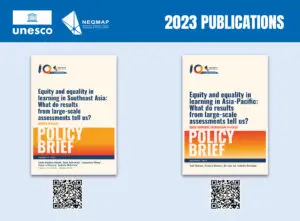Education systems around the world are making the shift from paper to computer-based testing, which can offer an effective and efficient means of conducting assessments. But what are some of the challenges countries are facing when making this transition and what caveats should educational professionals keep in mind? In some cases, is it advisable to wait before dispensing with paper altogether?
“Computer-based testing: What you need to know” will be the focus of a special seminar being hosted by the NEQMAP Secretariat at UNESCO Bangkok and the International Association for Educational Assessment (IAEA) on 19 February from 2pm-4.30pm.
The seminar will be held at the UNESCO Bangkok office (5th floor) and also livestreamed via Skype for Business (see registration link for details).
IAEA President Dr. Randy Elliot Bennett will open the seminar with an overview of computer-based testing around the world. Dr. Bennett brings a perspective informed by research dating back to the 1980s on integrating advances in cognitive science, technology, and measurement to create new approaches to assessment.
His presentation will be followed by a look at the processes, procedures and practical issues involved in the transition from paper-based to computer-based testing by IAEA board member Mr. Frans Kleintjes. Mr. Kleintjes brings vast experience related to the development of educational tests and procedures, particularly regarding psychometrics.
A question and answer session will follow the presentations.
IAEA is an associate member of NEQMAP (Network on Education Quality Monitoring in the Asia-Pacific) that aims to foster communication and collaboration among agencies involved in assessments. IAEA assists educational agencies in the development and application of assessment techniques to improve the quality of information and plays an active role in UNESCO activities related to assessment and evaluation issues.
The seminar will be livestreamed via Skype for Business. Register here.






